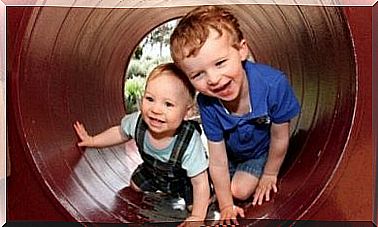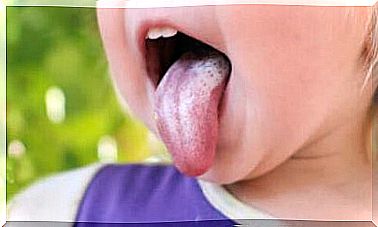10 Foods You Shouldn’t Give Your Baby – Parenthood
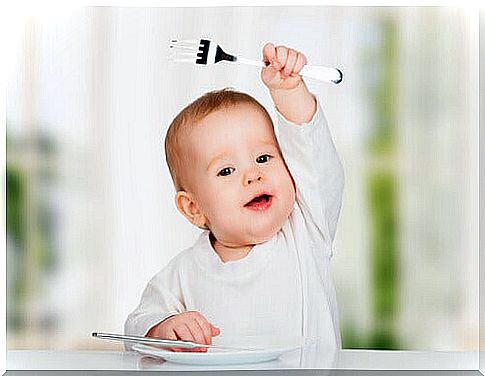
Pediatricians believe that there are foods that you should not give your baby until a certain age. Some can have negative effects on your child and their delicate digestive system. And others may pose a choking hazard.
In addition, insufficient intake can provoke the development of food allergies.
After breastfeeding or bottle-feeding, you can gradually introduce different foods to your child’s meals. Therefore, as a mother, it is very important that you know what foods you should not give the baby.
10 foods you shouldn’t give your baby
1. Honey
Children under one year old should never be fed honey. It contains a harmful bacteria known as clostridium botulinum. The latter can cause botulism, muscle paralysis and other serious illnesses.
Your child’s immune system is not strong enough at this stage to fight off these bacteria.
2. Nuts
Whole nuts, including peanuts, should not be given to children under 5 years of age. Unfortunately, they can suffocate while eating them.
As long as there is no history of food allergies or other allergies in your family, you can feed your baby peanuts after they are 6 months old. But on condition that they are crushed or in the form of butter.
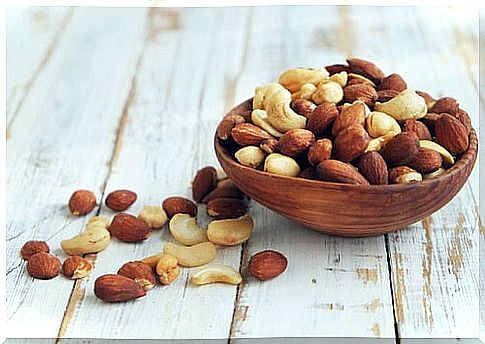
3. Strawberries
Strawberries are quite sour, which makes them unsuitable for a baby’s delicate digestive system.
You need to hang the strawberries until your child is one year old. Also, you need to take into account whether there is a history of allergy in the family.
4. Chocolate
Another food that you shouldn’t give your baby is chocolate. Indeed, it contains caffeine, a substance harmful to children.
It is also high in sugar, which should be consumed in moderation, especially in babies.
5. Fruit juices
Fruit juice has calories, but none of the fat, protein, calcium, vitamin D, or fiber babies need.
Too much juice can also cause cavities, diarrhea, and other chronic stomach problems.
6.- Smoked and salted meats
Most smoked or salted meats (like bologna and bacon) contain nitrates and other chemicals.
In addition, they contain a high content of sodium and animal fat. These are harmful to children.
7. Cow’s milk
Under no circumstances should you give cow’s milk to your child under one year of age. Cow’s milk does not contain all of the nutrients (such as iron and vitamin E) that a baby needs to grow taller. It will therefore not help it to develop during its first year. This is also why breast milk is better.
Once your child has passed the first year, he will be able to consume whole cow’s milk in moderation. You must, however, be careful of possible intolerances.
8. Fish rich in mercury
The fish are very healthy. Indeed, i l is rich in protein, vitamins and minerals. It is generally sweeter than meat and therefore easier for the baby to eat.
However, it is important to research the particular type of fish that parents want to feed the child. They don’t all have as much mercury in their systems.
Also keep in mind that mercury is a dangerous neurotoxin. Moreover, it can easily accumulate in the baby’s body.
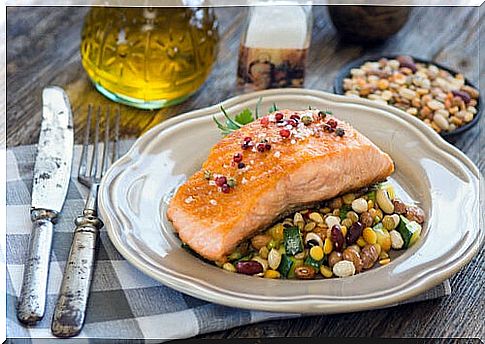
9. Sugar and salt
Sugar and sugary candy are harmful to your baby. They are therefore considered foods that you should not give the baby during his first months of life.
They can alter the development of the basics of taste in your little one. Also, they can keep them awake all night long.
Likewise, children are not advised to consume a lot of salt. Indeed, it is not good for their kidneys. It is therefore advisable not to include it in the diet of children under one year of age. From one year old it can be included, but in small quantities.
10. Rice-based cereals
If you choose to give your child rice cereal, choose whole options rather than white ones. Because these are more nutritious and will accustom your baby to the flavor of whole grains.
We therefore recommend that you try brown rice and oatmeal (with peanut butter or fresh fruit) or quinoa.
Therefore, when introducing new foods into your baby’s diet, you need to make sure that they do not have side effects that could affect him in a negative way.

